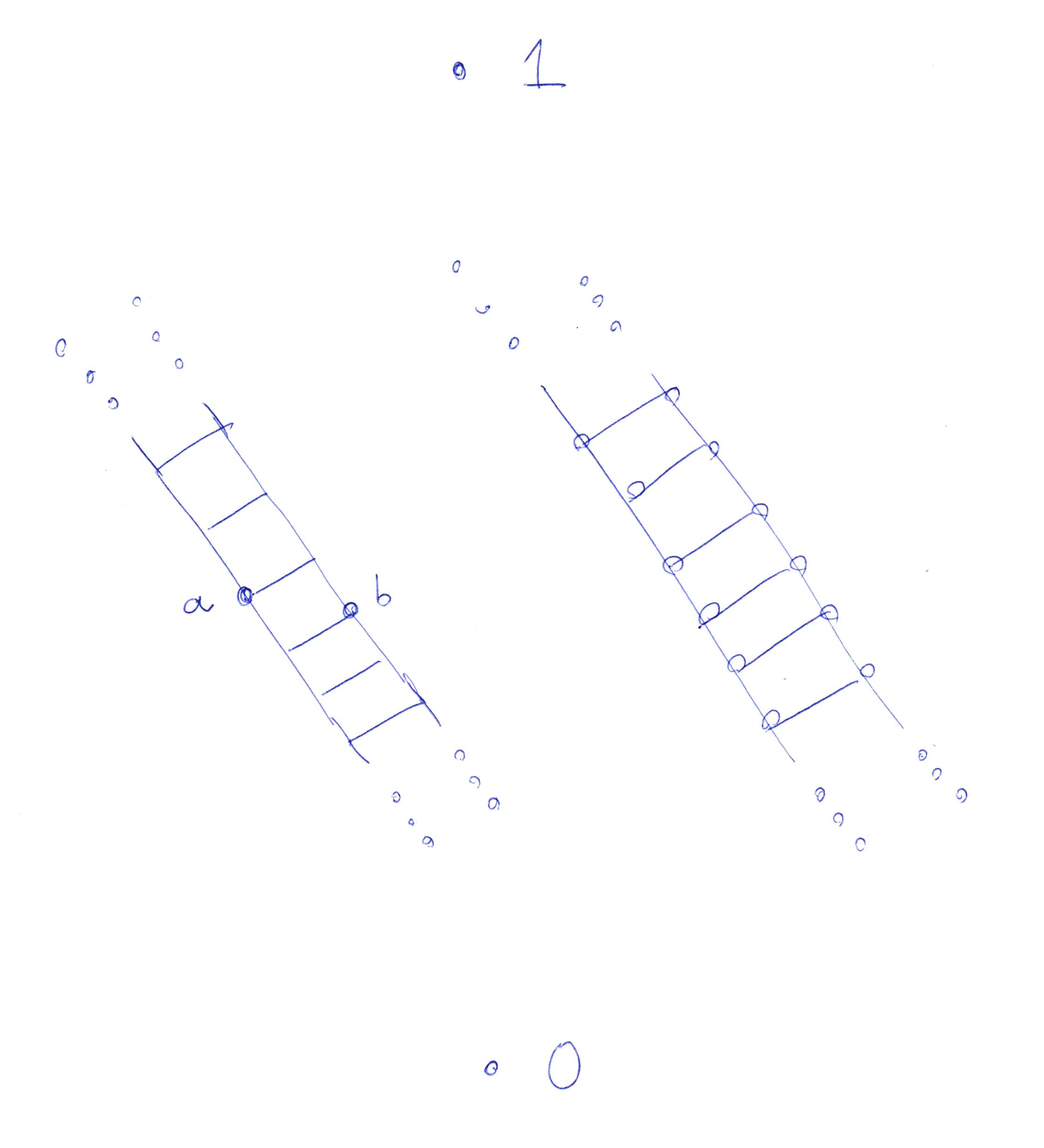One can ensure property $2$ simply by taking reduced products.
Suppose that $I$ is an index set and $L_{i}$ is a lattice for each $i\in I$ such that each $x\in L_{i}$ has at least 2 complements.
Then suppose that $\mathcal{F}$ is a filter on $I$ such that $P(I)/\mathcal{F}$ is atomless (i.e. where $\mathcal{F}$ is nowhere an ultrafilter). Then I claim that the reduced product $\prod_{i\in I}L_{i}/\mathcal{F}$ satisfies properties 1 and 2. Let $[(x_{i})_{i\in I}]_{\mathcal{F}}\in\prod_{i\in I}L_{i}/\mathcal{F}$.
Observe that every element of $\prod_{i\in I}L_{i}/\mathcal{F}$ has at least two complements. In fact, the formula $$\forall x\exists y,z,x\wedge y=0\,\text{ and }\,x\vee y=1\,\text{ and }\,x\wedge z=0\,\text{ and }\,x\vee z=1$$ is a Horn sentence, and Horn formulae are always preserved by taking reduced products.
One can show that for each $\mathbf{x}\in\prod_{i\in I}L_{i}/\mathcal{F}$ with $\mathbf{x}\not\in\{0,1\}$, there is some $\mathbf{y}\in\prod_{i\in I}\{0,1\}/\mathcal{F}$ with $\mathbf{x}\vee\mathbf{y}\neq 1,\mathbf{x}\wedge\mathbf{y}\neq 1$ and where $\mathbf{x},\mathbf{y}$ are incomparable.
Automated counterexamples
This counterexample can be produced algorithmically.
The Feferman-Vaught theorem is a result that allows one to compute the truth value of a sentence $\phi$ in a reduced power $\mathcal{A}^{I}/\mathcal{F}$ as long as one is able to compute the truth value of sentences in $P(I)/\mathcal{F}$ and $\mathcal{A}$. In particular, since the theory of atomless Boolean algebras is $\omega$-categorical and hence complete, if $P(I)/\mathcal{F},P(J)/\mathcal{F}$ are atomless, then $\mathcal{A}^{I}/\mathcal{F}$ and $\mathcal{A}^{J}/\mathcal{G}$ are elementarily equivalent. Furthermore, if $\mathcal{A}$ is finite and $P(I)/\mathcal{F}$ is atomless and infinite and $\phi$ is a first order sentence, then the question of whether $\mathcal{A}^{I}/\mathcal{F}\models\phi$ is decidable and independent of $I,\mathcal{F}$.

